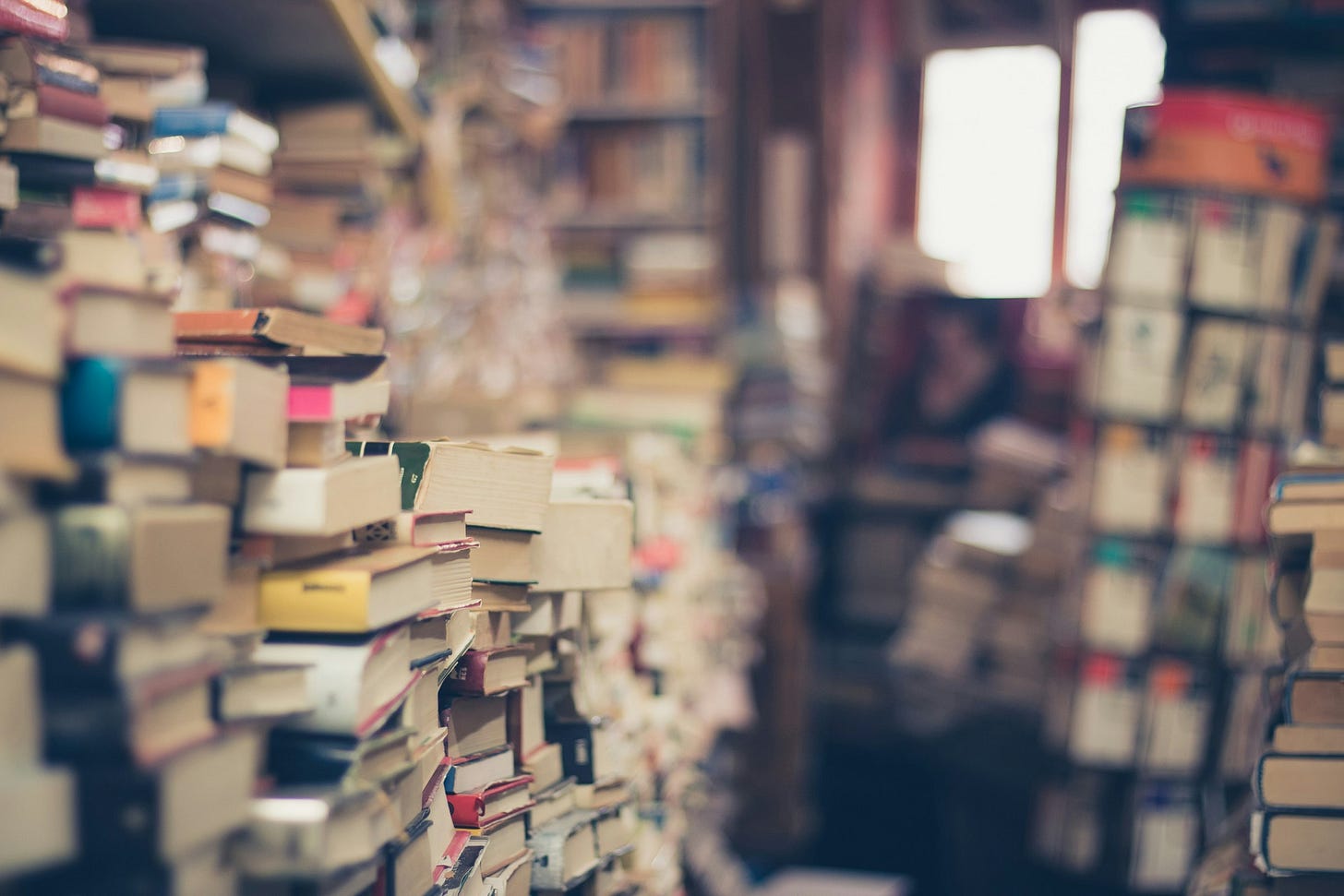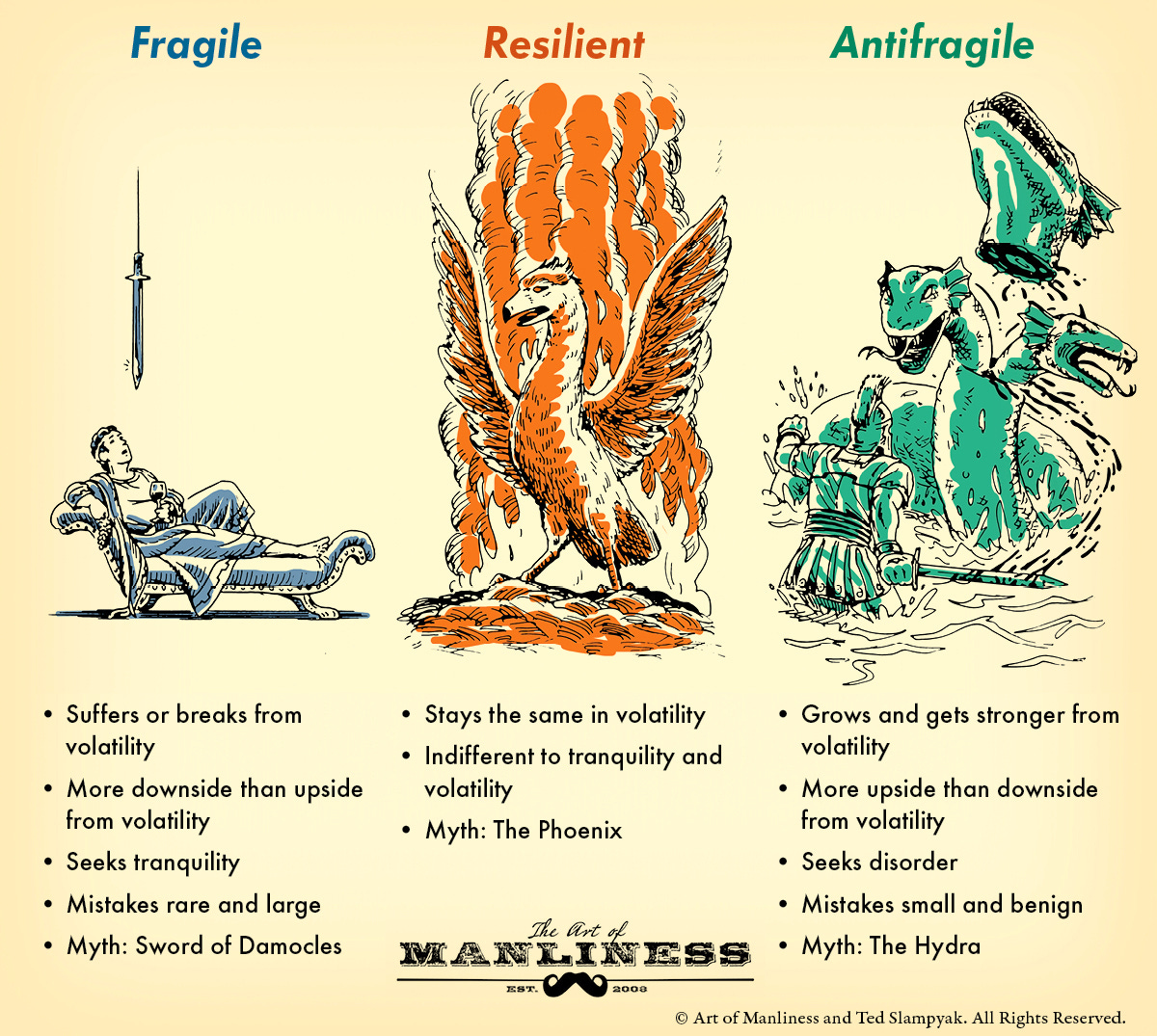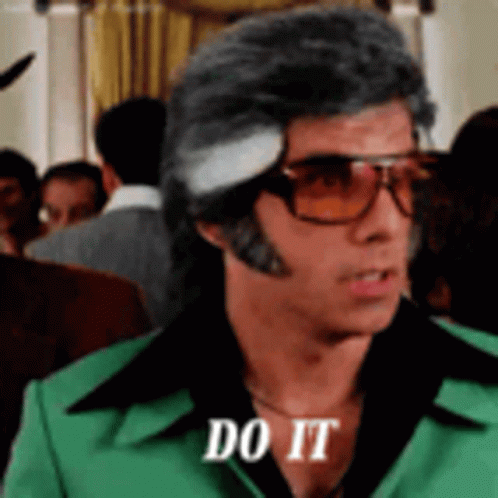Collect Physical Media
Renaissance Humans, #52
I am a hoarder.

Of books, that is.
Over the years, the rows and rows of books in my office grow and grow, threatening to and occasionally actually toppling over in mini-avalanches.
Already, I have more books than I could read in my remaining time on earth, even if I lived to 100.
I’m not at Umberto Eco status, but a man can have aspirations.
Nassim Taleb had this to say about Eco:
He belongs to that small class of scholars who are encyclopedic, insightful, and nondull. He is the owner of a large personal library (containing thirty thousand books), and separates visitors into two categories: those who react with “Wow! Signore professore dottore Eco, what a library you have! How many of these books have you read?” and the others — a very small minority — who get the point that a private library is not an ego-boosting appendage but a research tool. Read books are far less valuable than unread ones. The library should contain as much of what you do not know as your financial means, mortgage rates, and the currently tight real-estate market allows you to put there. You will accumulate more knowledge and more books as you grow older, and the growing number of unread books on the shelves will look at you menacingly. Indeed, the more you know, the larger the rows of unread books. Let us call this collection of unread books an antilibrary.
The Japanese term for collecting books you haven't read is Tsundoku. It refers to the habit of acquiring books and letting them accumulate without reading them.
Is this a wasteful and selfish habit?
After all, I could just go to one of our endangered public libraries and find what I need.
But there’s something about having them right where I can get them, 24-7.
My curiosity works in capricious and seemingly arbitrary ways. I love when I get the desire to study a particular topic, and find I already have several related books, patiently waiting for my attention to float their way.
Sure, I can Chat GPT, seek what Wikipedia has to say. But these offer surface level understanding—not the deep comprehension necessary to internalize and synthesize new knowledge into our worldview.
Nassim Taleb has a fragile, resilient, and antifragile framing for practices, objects, and other parts of human life.
Let’s think about the content contained in a book.
It could be The Odyssey or The Illiad—classic works of literature fellow Navy veteran Matt Long is working through on his Substack.
It could be a how-to book on gardening, or maybe a deep dive into complexity science.
In Taleb’s framing, reading such a text on a kindle or laptop is a fragile endeavor. Sure, you can have your material backed up to the cloud, in case you drop your device or spill water on it. But what about if the cloud goes down? Or you have no internet access and you haven’t downloaded what you want ahead of time? And with an electronic device, we must have power to access the text.
It’s a fragile thing, compared to the alternatives.
There are many arguments in favor of electronic copies of media—space, environmental impact, cost, convenience. But let’s examine the alternatives.
A physical book is a resilient media artifact. We can throw it in our bag and go. Enjoy it in any manner of conditions. The main weak point is we must keep it dry—but I’ve read books after they dry and they still mostly work.
The antifragile option in this framing is to memorize the knowledge. We memorize as much as we can of the great work of literature1, and can retell it around the campfire. We recall the fundamentals of the gardening book, and even naked we possess the knowledge to cultivate healthy sustenance. We understand and retain the concepts in the book on complexity, and this helps us see the patterns of emergence and nonlinearity out in the world.
Our commonplace books can help here, bridging the gap with personally created summaries until we fully internalize the knowledge.
What’s more, with the antifragile option, we can adapt or add to the text if the situation warrants it, even as we pass it orally to others.
But it’s more than just physical books we should collect.
We should be collecting Vinyl, CDs, and DVDs of our favorite music, movies, and shows.
In this age of instantly downloadable content, why should we clutter up our living spaces with physical media?
Didn’t Marie Kondo already cure us of such packrat tendencies?
We can stream any song ever created on Spotify— why should we go to the trouble of buying a CD or Album?
We can watch any video, at any time, from anywhere on the planet—a DVD is obsolete, right?
Seven Reasons to Collect Physical Media
Permanence. Digital media is usually subject to licensing agreements, while physical media is yours forever. Streaming services can remove, censor, or alter content, but a vinyl record, book, or DVD remains in your possession, unaltered. Once created, no one can change the content. It’s a time capsule, and the content within may age well or poorly as the years progress. But it’s there, indelibly— a monument from one artist to the rest of us.
Offline. Streaming requires an internet connection and centralized servers. If a service shuts down, your access to purchased digital media can vanish. Physical media works offline, anytime, anywhere.
Quality. Physical formats often provide better sound and picture quality than digital streaming. Vinyl records and CDs have an analog warmth audiophiles prefer over compressed MP3s2. Blu-rays and 4K UHD discs deliver higher bitrates and better visuals than streaming. Not to mention the lack of advertising.
Aesthetics. Owning a physical collection connects you to art in a way digital files cannot. Vinyl records come with large-format artwork and liner notes. Books have a distinct feel, smell, and presence on a bookshelf. DVDs and CDs often include exclusive booklets, behind-the-scenes content, and special packaging.
Collectibility. Physical media retains resale and collector's value, while digital purchases cannot be resold. Rare editions, limited pressings, and signed copies can appreciate in value over time. Your collection is a reflection of your personality, a curated archive of what you love. Physical media highlights your taste, rather than relying on an algorithm.
Engagement. Physical media fosters attention and immersion rather than mindless consumption. Vinyl encourages listening to a whole album, rather than skipping around on Spotify. DVDs keep you from endless scrolling on streaming services, paralyzed by the options. And again— NO ADS!
Legacy. Finally, physical media is something you can hand down to others—a personal library, a record collection, a film archive. Digital media disappears into the air like morning mist when the servers shut down or you lose access to your account.
In this time of virtual/online everything, collecting physical media grounds our engagement with art in the physical world. It’s a way to evade the constraints and whims of algorithms and streaming platforms—to connect with art on our own terms.
Currere Certamen Tuum — Run Your Race
How humans did it, back in the day— memory palaces.
Yes, a CD is digitally recorded, but many times the quality is better than streaming.




Love this idea Adam. I have been hoarding books for ages and my shelves of unread books are as full as my shelves of read books. I enjoy visiting the library but having my own close at hand is a wonderful treasure. In the past few years as I have tried to disconnect from social media and other digital content I have also started collecting other physical media. I dream of having a library like that of Umberto Eco with many types of media available as needed.
Thanks as well for the mention. All the best.
Agree💯 with your arguments here. I'll add that the tactile experience of reading a finely-bound leather book with archival-quality paper is one of my guilty pleasures, and I've had the good fortune to collect a library of such books (Franklin Library, Easton Press, Folio Society, to name a few...) that appear almost weekly at my local "Friends of the Library" bookshop. People are just getting rid of them nowadays as they downsize or die off. I usually pay $5 or $10 a volume, and they are almost all classics. Anyway, just thought I'd share this tip for anyone looking to put together a collectible library on a budget. (And oh yeah, you can find great vinyl records there too!)